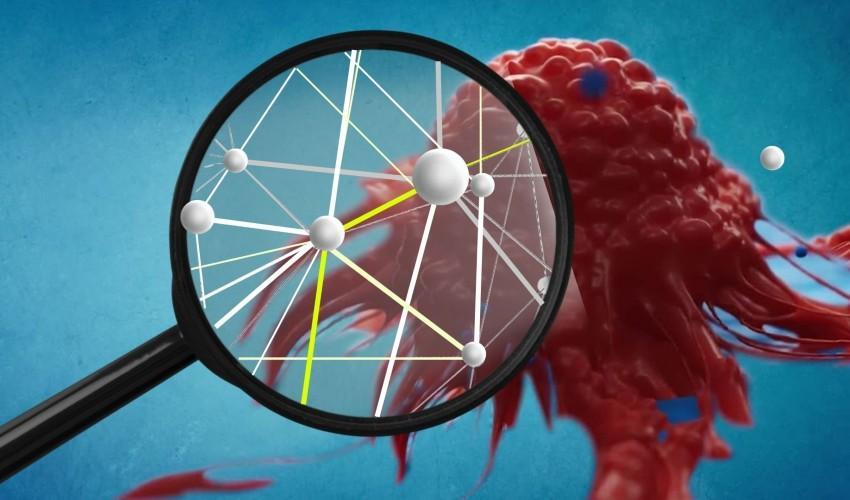
Fighting Drug Resistance with Computational Methods
FRANCESCA BUFFA'S ERC FUNDED PROJECT COMBINES NETWORK ANALYSIS, AGENT BASED MODELING AND GENOMICS TO UNDERSTAND THE WORKINGS OF CANCER, A MULTIFACTORIAL DISEASE EVOLVING IN A COMPLEX ENVIRONMENTWhen Professor Francesca Buffa (Department of Computing Sciences) joined Bocconi, in February 2022, she came to Milan with a ERC-funded project under her belt: MicroC - Agent-Based Modelling of Gene Networks to model clonal selection in the tumour microenvironment and predict therapeutic resistance.
The immediate aim of MicroC is to develop computational methods that allow us to better understand, and hopefully overcome, drug resistance in a particularly tough cancer, the triple-negative breast cancer. The ultimate goal is to generalize the approach and to unveil cellular behavior and interactions in a variety of complex diseases and environments, i.e. where different types of cells signal each other following different biological pathways.
Professor Buffa is developing new computational methods merging network analysis, agent-based modeling and genomics.
“In this line of research,” Prof. Buffa says, “we consider the cell as a network of genes, and we model cell behavior as the result of the interactions (signaling activity) of genes. Cells, in turn, interact amongst themselves, determining the growth of the cancer, in our case, or any other outcome of interest in other diseases or biological problems.”
The project combines lab experiments, observation of patients’ tissue and the training of virtual cells in a machine learning model that simulates the behavior of genes and cells.
“We adopt an iterative process,” Prof. Buffa explains. “We observe what happens to the cells under different perturbations and feed the data into our model until it is able to predict the same behavior. Then, we repeat the same process with different perturbations and observe whether the model behaves properly. If not, we feed it new data and so on.”
At every iteration, the model gets better. The aim of this training is to have a model that can be used to simulate a large number of different hypotheses on the reaction of cancerous cells to new therapies, and to predict the optimal combinations of these therapies.
Agent-based models are already used in many fields, including simulations of the effects of new drugs, but MicroC makes a step forward, modeling the cell as a meta-agent, i.e. a network of agents, in this case of genes. “It will allow to use in a dynamic way information such as what gene activates another gene. We can define the behavior of a cell depending on the stimuli given by the inner network.”
The final prototype model will be specific, describing the behavior of well-defined cancerous cells, but the method promises to be transferable to other cancers, other diseases and even to other fields. “The next steps,” Prof. Buffa concludes, “will be refining the process by which these computational agents learn, optimizing the training of meta-agents, and identifying approaches that address the computational demand of these methods.”
Francesca Buffa's recruitment to Bocconi was made possible by the contribution of Fondazione Romeo and Enrica Invernizzi, a major supporter of the University. Francesca Buffa's research activity stood out in Fondazione Cariplo's ERC call, which aims to promote the attractiveness of the Lombardy research system. The call makes it possible to recruit ERC-winning scholars from foreign research centers and transfer the funding to a Lombardy university.
by Fabio Todesco
